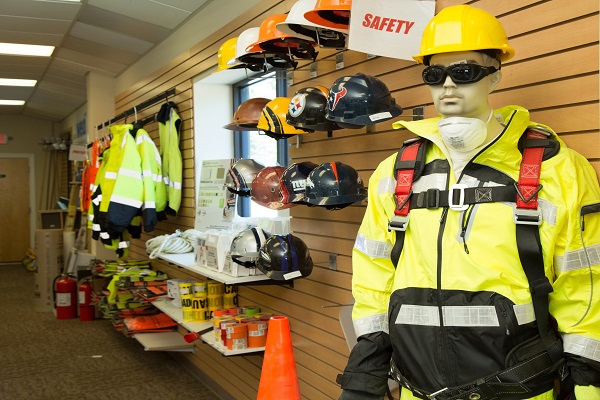
Safety shops provide essential products and equipment designed to protect individuals from potential hazards in various environments, such as workplaces, homes, and public spaces. These shops cater to the needs of industries like construction, healthcare Safety shop, manufacturing, and more, offering a wide range of safety solutions to reduce the risk of accidents and ensure compliance with health and safety regulations. From personal protective equipment (PPE) to fire safety tools and first aid kits, safety shops serve as a crucial resource for fostering safe environments.
One of the primary categories of products in safety shops is personal protective equipment. PPE includes gear such as helmets, gloves, safety goggles, masks, and protective clothing, which shield workers from physical, chemical, and biological hazards. For example, construction workers often rely on hard hats to protect their heads from falling objects, while safety goggles are essential in laboratories where chemicals or debris may pose a risk to the eyes. Gloves, whether for handling sharp objects or hazardous materials, offer protection from cuts, burns, and chemical exposure. Proper PPE is vital in reducing the risk of injuries in a wide range of industries, and it is often legally required in hazardous work environments.
Fire safety equipment is another important category found in safety shops. Fire extinguishers, smoke detectors, fire blankets, and emergency exit signs are critical tools for preventing and managing fire emergencies. Fire extinguishers come in various types, designed to combat specific classes of fires, such as electrical, grease, or chemical fires. Having the correct type of fire extinguisher on hand can prevent a small fire from becoming a catastrophic event. Smoke detectors provide early warning, allowing people to evacuate or take action before the fire spreads. Fire safety equipment is mandatory in many businesses, schools, and public buildings to ensure preparedness and compliance with safety codes.
First aid kits are a staple of any safety shop, offering basic medical supplies to treat injuries in emergency situations. A well-equipped first aid kit should include bandages, antiseptics, burn treatments, and other essentials for addressing minor injuries until professional help can be reached. In more hazardous environments, such as construction sites or manufacturing plants, more comprehensive kits with items like CPR masks or splints may be necessary. Safety shops also often provide specialized first aid kits tailored to specific industries, ensuring that workers are prepared to respond to emergencies that may arise in their particular field of work.
For industries dealing with hazardous chemicals or materials, safety shops offer containment and spill control products. Spill kits, absorbent pads, and protective barriers are essential for containing and cleaning up spills of harmful substances. These kits often include gloves, protective clothing, and tools for safely managing chemical spills, which helps prevent environmental contamination and protects workers from dangerous exposure. Spill control equipment is especially important in industries such as chemical manufacturing, oil and gas, or laboratories, where the risk of accidental spills is high.
Fall protection equipment is another critical offering in safety shops, particularly for industries where workers are required to perform tasks at heights. This includes items like harnesses, lanyards, and anchor points designed to prevent serious injuries or fatalities resulting from falls. Construction, roofing, and maintenance industries are especially dependent on fall protection gear, as working at heights is one of the leading causes of workplace accidents. Providing workers with proper fall protection equipment is not only a best practice but also often a legal requirement in many countries.
In addition to standard safety equipment, modern safety shops also stock more advanced technological tools such as GPS trackers, emergency communication devices, and personal alarms. These tools provide additional layers of security, especially for workers in remote or high-risk locations, allowing them to communicate quickly and efficiently in case of an emergency.
Overall, safety shops play a vital role in promoting health and safety in various environments. They provide the necessary tools to reduce risks, prevent accidents, and ensure that individuals and workplaces are equipped to handle emergencies. Investing in safety equipment from a reliable safety shop is an important step toward fostering a culture of preparedness and protection in any setting.